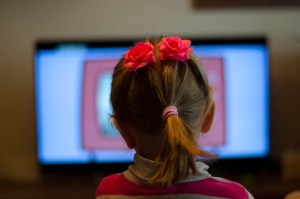If you notice a child squinting, if he or she sits close to the TV, or holds a book close to their face, they most likely have a refractive error. They might also be unaware of what’s happening in the distance. They are nearsighted, farsighted, or have astigmatism. They are born that way, but refractive errors in children can be corrected.
Clear Vision

Our eyes act much like a camera. In order to have clear vision, light enters the cornea or the front portion of our eye, passes through the lens, and focuses directly on the retina in the back of the eye. If the light focuses in front of or behind the retina, that is a refractive error and vision is blurred or distorted.
Types Of Refractive Errors
- Myopia is the most common of the refractive errors in children. Here light enters the eye and is focused in front of the retina. A child sees images in their near vision, but cannot focus in the distance. Glasses can correct the issue. This is also known as nearsightedness. A child will struggle to see the blackboard at school.
- Hyperopia is another refractive error in children where the light focuses behind the retina. This is also known as farsightedness. Here children see clearly in the distance, but have trouble focusing on near objects. A child will struggle to read a book.
- Astigmatism indicates an abnormally shaped eye which rather than being shaped like a ball, it is more like a football. This causes light to focus on more than one area of the retina resulting in distorted vision at all distances.
Importance Of Early Diagnosis
It is imperative to determine if your child is suffering with distorted or blurred vision at an early age. It is unlikely your child can tell you they are having vision problems. They may not always exhibit behaviors that indicate a vision issue, so they must be screened by a pediatric eye specialist like Pediatric Ophthalmology & Strabismus Associates in Newtown Square.
Untreated refractive errors can lead to more serious vision problems like lazy eye or strabismus, more commonly known as crossed eyes.
Refractive errors in children are quite common. Be vigilant, look for symptoms, and see a pediatric ophthalmologist for treatment.
Contact Pediatric Ophthalmology & Strabismus Associates at (610) 347-7672 if you suspect your child may have a refractive error.
Sources:
Refractive Errors in Children | Children’s Hospital of Philadelphia (chop.edu)
Refractive Errors – Children’s Eye Care of Michigan (childrenseyecaremich.com)
